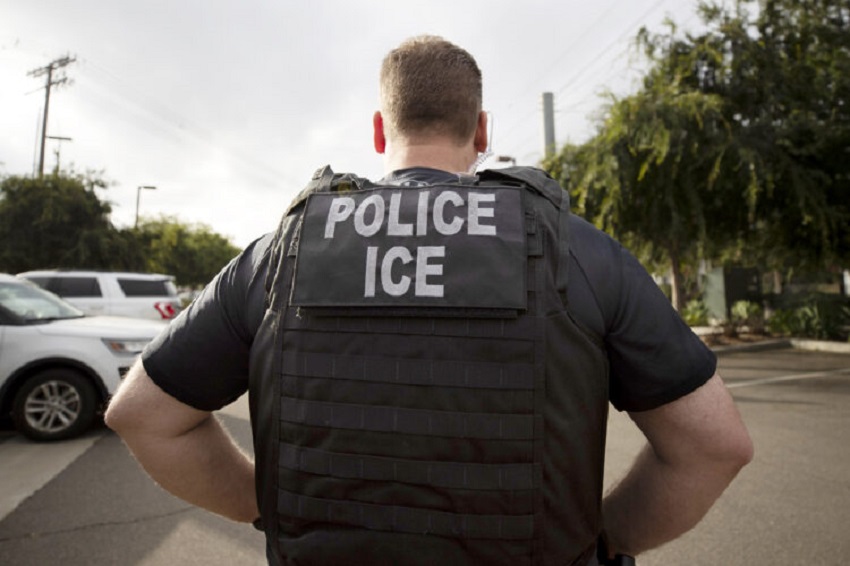Ogden, UT –
Utah Governor Spencer Cox, alongside the Utah Sheriffs’ Association, has voiced strong support for President-elect Donald Trump’s plans to increase deportations, particularly targeting undocumented migrants convicted of crimes. In a letter dated January 2, the governor and the state’s sheriffs called for several changes to Immigration and Customs Enforcement (ICE) operations within Utah, expressing frustration over the challenges they say have been exacerbated under the Biden administration.
The letter, addressed to Tom Homan, the incoming “border czar,” and South Dakota Governor Kristi Noem, Trump’s nominee for Secretary of the U.S. Department of Homeland Security, details issues local law enforcement agencies have faced in detaining and deporting undocumented criminals. Among the main grievances outlined in the letter were a lack of cooperation from federal partners and the difficulty in holding criminal migrants due to federal detention regulations.
Cox and the Utah Sheriffs’ Association are seeking new leadership at the Salt Lake City ICE Field Office, particularly requesting the removal of Michael Bernacke, the current director. They claim Bernacke’s leadership has been ineffective and marked by resistance to solutions that would allow the state to better manage the detention of migrants facing deportation. The letter specifically criticized Bernacke for allegedly calling Utah a “sanctuary state” for migrants—comments that Cox and other officials strongly disputed as misleading and harmful to law enforcement cooperation.
“Mr. Bernacke no longer has any credibility or good faith with the Cox administration or the larger Utah law enforcement community,” the letter states, calling the situation untenable, particularly during what the officials describe as a “crisis.”
In addition to leadership changes, the group is calling for a revision of what they deem “unreasonable detention standards,” which they claim have hindered their ability to hold ICE detainees. These standards include special privileges for detainees, such as private jail entrances or haircuts, which the sheriffs argue complicate the process of detaining and removing undocumented criminals. The sheriffs also requested additional funding for ICE jail beds and transportation resources to assist in deporting migrants who are being held in local facilities.
Currently, Utah faces a shortage of detention space, with the nearest ICE detention center located in Las Vegas. According to the letter, this facility only has about 40 beds and holds detainees from multiple states, including Utah, Nevada, Idaho, and Montana, which they argue is insufficient for the scope of the problem.
Governor Cox has previously advocated for an ICE detention facility within Utah to alleviate the burden on local jails and reduce the need for transporting detainees to out-of-state facilities. However, these efforts have yet to result in any significant changes.
Local law enforcement officials, including Utah County Sheriff Mike Smith, have pointed to an uptick in criminal activity involving undocumented individuals. Sheriff Smith emphasized the need for swift action, advocating for a “fast track” deportation process for migrants committing crimes. He also expressed hope that the incoming Trump administration would work more closely with state and local authorities to address these issues.
“We’re seeing an increase in criminal activity from individuals here illegally,” Smith said. “I think the focus should be on crime. If you’re here illegally and committing crimes in our cities and counties, then there should be a fast track out of here.”
While state leaders such as Cox and Smith have rallied behind stricter deportation policies, others in Utah have raised concerns about the broader implications of such measures. House Minority Leader Angela Romero and Senate Minority Leader Luz Escamilla, both Democrats, warned that any policies enacted could unfairly impact legal immigrants, who might be caught up in the broader rhetoric surrounding immigration enforcement.
Romero stressed that immigration issues should be addressed at the federal level by Congress, rather than through state legislation.
Local immigration attorneys have already reported growing concerns from undocumented individuals, some of whom fear deportation despite having no criminal history. Jake Tuimaualuga, an immigration lawyer at ImmiVisa Law Group, noted that many of his clients are worried about the potential for ICE raids or deportations under the current climate of heightened immigration enforcement.
“A lot of the fear from your average undocumented person in your neighborhood is that tomorrow, somebody’s going to be knocking at their door to take them out of here,” Tuimaualuga said.
Despite the anxiety surrounding immigration issues, Tuimaualuga advised undocumented individuals to explore their legal options and work toward gaining legal status, though he acknowledged that the process can be costly and complicated.
As Utah lawmakers prepare for the upcoming legislative session, immigration policy will undoubtedly be a key topic of debate. While Cox and other supporters of stricter immigration measures push for changes to deportation processes, opponents are calling for a more cautious approach to ensure that legal immigrants are not unduly affected by the rhetoric surrounding undocumented migration. The outcome of these discussions will likely shape the state’s immigration policies for years to come.

